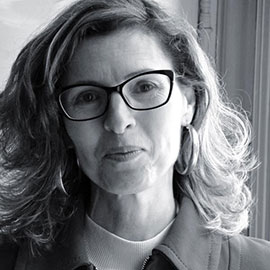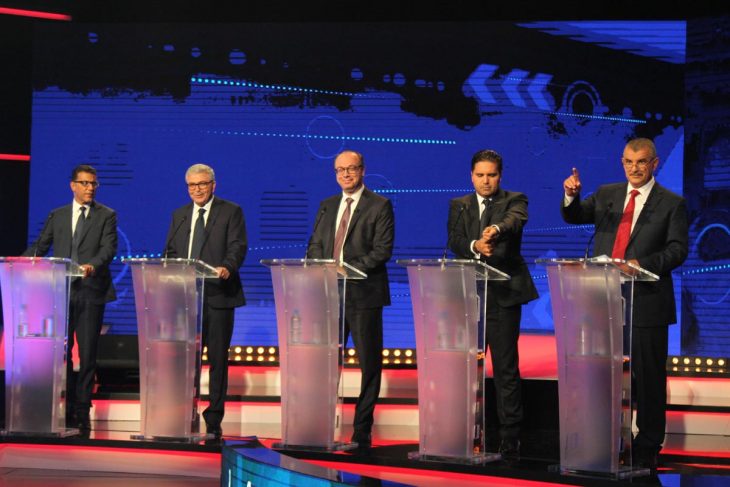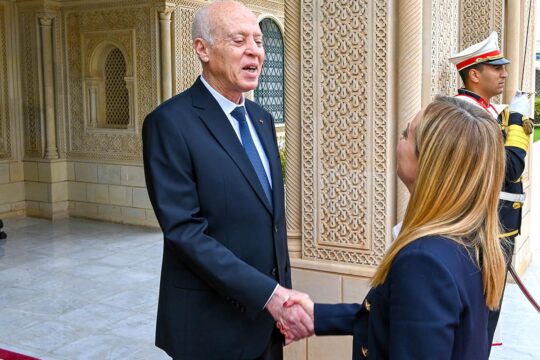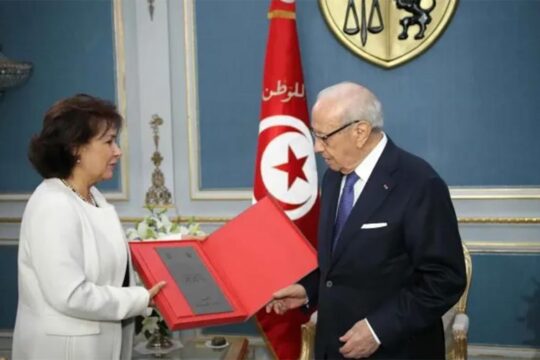"I will never support parties or candidates who:
- put Bourguiba on a pedestal, even though his legacy is complex. Claiming to be a follower without distinguishing between his extraordinary social advances (including the question of women) and the vicious circle of his authoritarianism and clientelism is, in my view, enough to rule someone out.
- surround themselves with central committee members of the RDC (a party created in 1988 by former President Ben Ali). Some members of this central committee are respectable individuals and have not robbed the people. But they belong to the old days. You can't pretend to make something new out of something old; anti-democratic software is not so easy to update.
- consider that the transitional justice process is not necessary and want to achieve ‘reconciliation’ (or rather amnesty) before going through the processes of truth and justice".
This is what jurist Farah Hachad, founder of the NGO Labo Démocratique, wrote on Facebook last week. She is one of the people from civil society who have been deeply engaged in the transitional justice process right from the start.
But in the campaign for the 15 September early presidential elections triggered by the death of President Beji Caied Essebsi on 25 July, Farah Hashad's voice is a lonely one. According to the debates that have been taking place on social networks since September 2, the official start of this campaign, very few Tunisians have made the same demands as this activist. The candidates -- 26 in all including Islamists, centrists, progressives, populists, anti-system, pro-old-system, Arab nationalists, left-wing and left-wing extremists -- seem to be avoiding this subject like the Plague, with only a few exceptions.
Avoiding the issue
Three televised debates with the 26 presidential candidates have recently taken place in Tunisia, a first in the Arab world. More than three million Tunisians (the country has seven million voters) followed this event on TV. Divided into three groups, the candidates expressed their views on the prerogatives of the President, namely national security, border protection and diplomacy. General questions, also drawn by lot, were asked by a duo of journalists at the end of the programme. They included topics such as equal inheritance, individual rights and freedoms, the death penalty and transitional justice. Although the divisive theme of transitional justice has been carefully avoided in public meetings and media interviews by political calculation, it was expressly mentioned twice in the television debates of 7 and 8 September.
A first question was put to Abdelfattah Mourou, candidate of the Ennahda (Islamist) movement, about whether he would publish the list of martyrs and wounded of the Revolution, which the former president refrained from doing. Mourou, who testified before the specialized chambers in the emblematic Matmati case concerning the enforced disappearance of an Islamist and his death under torture in 1991, replied in the affirmative, adding: "We will also provide reparations for the victims while establishing the truth about the circumstances of the martyrs' deaths".
The other question was addressed to Mohsen Marzouk, founder of the Al Machrou (The Project) party and former leading member of President Caied Essebsi's Nida Tounes party. "How do you intend to manage the transitional justice file?” he was asked. Mohsen Marzouk, despite his break with Nida, draws his support from people close to the former regime of Ben Ali, the same electoral pool as the party he broke from. Hence his answer, which is in total contradiction with the facts and ironic since he is the creator of the Kawakibi Centre for Democratic Transitions, one of whose missions is to produce research on transitional justice: "This process in Tunisia […] is nothing but revenge and hatred. The solution would be to put in place a law on global reconciliation. There is also a project on this issued by the State."
"Global reconciliation"
Hayet Ouertani, former Commissioner of the Truth and Dignity Commission (IVD) responsible for reparations, commented as follows on the candidates' reactions and speeches: "Even those considered close to the process and able to adopt the recommendations of the Truth Commission in their policies do not want to mention the name of the Commission. I listened to Mongi Rahoui, a left-wing man, promise the citizens of Bizerte he would demand reparations and apologies from France for its responsibilities in the Bizerte war. However, he does not cite the IVD as the source of this idea, as if it had become the most pestilential body in the country.”
In fact, "reconciliation" is being used in this presidential campaign as the key word to talk about the transitional justice issue. More precisely, it is a reconciliation-with-amnesty that is at stake, punctuated by slogans such as "let us turn the page on the past", "it is time to forget our hatreds of yesteryear" and "let us revive our national unity".
"Let's turn the page on the past"
The theme of "global reconciliation" is clear in the election promises of candidate Youssef Chahed, Prime Minister and leader of the Tahiya Tounes (Long Live Tunisia) party, who has refused for months to publish the IVD report in the Official Journal. The term also punctuates the meetings of Abdekerim Zbidi, former Minister of Defence and independent candidate but a man of the system extremely close to the late Beji Caied Essebsi. The motto also seems to be very present in the electoral programming of all those that came from the Nida Tounes party, which has fragmented because of the nepotism of its leader and murderous clan struggles since 2015. That includes Nebil Karoui, president of Kalb Tounes (Heart of Tunisia), the favourite in the polls for having conducted his campaign for months on his Nessma TV and currently in prison; Said Aidi, former head of Nida and former minister; Salma Elloumi, former minister and chief of staff to BCE; and Mohsen Marzouk.
Fragility of candidates for transitional justice
"We are not surprised by the positions of all these candidates in the running. They rejected transitional justice outright as early as 2014 as it demands accountability from several of the activists from the ranks of Nida Tounes,” says Khayam Chemli, a lawyer and member of the NGO Avocats sans frontières (ASF). “ But we survived and fought hard against the economic reconciliation law proposed by BCE. But the person that is for us the most formidable remains the candidate Abir Moussi, the passionaria of the old regime, who makes denial of the Revolution and the victims of the dictatorship a constant in her speeches. For her, all this is a lie!"
In the current electoral turmoil, the voices of candidates supporting the five-year work to shed light on the truth and rehabilitate the victims of human rights abuses are not being heard. There are a few raising their voice from time to time, such as Mohamed Abbou, President of Tayar Dimocrati (Democratic Movement), Elyes Fakhfakh, Ettakatol, and Monsef Marzouki, who was President of the Republic at the time of the Troika. However, these candidates are likely to suffer from the fragmentation of votes because of a Tunisian political scene currently split into a thousand and one pieces.






